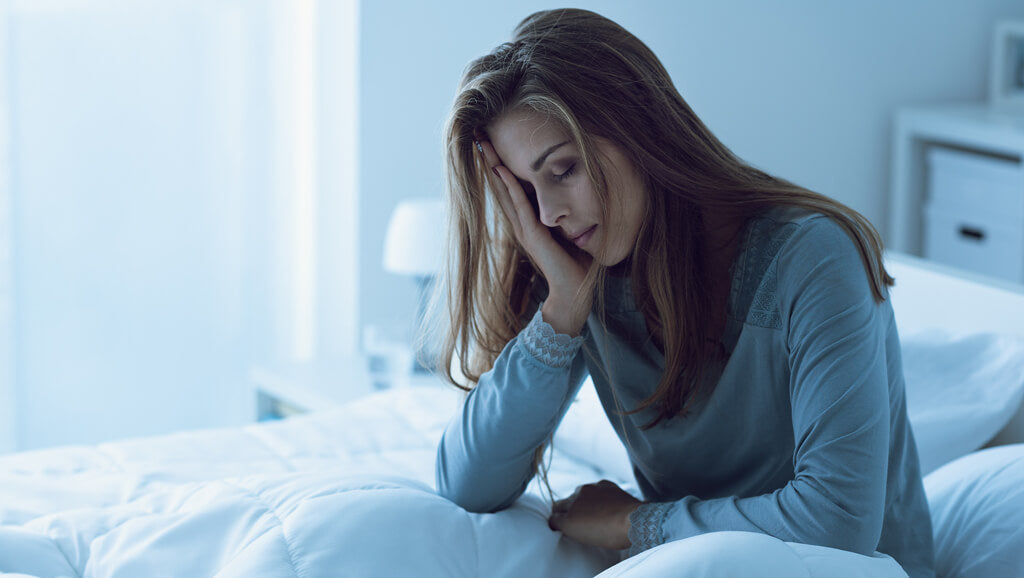Everyone gets tired. No matter what. It’s a normal physical response. It’s why we sleep — our body’s feel the day ending and we slow down, and we know it’s time to close our eyes and give in so we can rejuvenate and be refreshed. That need to give into crawling under the covers for slumber or that sense of being worn out after physical activity is completely natural.
Fatigue is different. This is a marked lack of energy that begins to wear us down and can’t be “slept off.” You feel it throughout your entire body, deep in your bones, and it is the companion of exhaustion.
How can you tell the difference?
If you’re able to lay down and fall asleep when you’re feeling tired or sleepy — whether at the end of the day or just grabbing a quick nap — and wake refreshed and rested, then you’re just tired. Let’s say, however, you’re seriously worn out and when you place your head on the pillow or close your eyes to snooze, it eludes you or when you finally do fall asleep, you awake more tired than when you laid down. That, my friends, is fatigue and exhaustion, and they are body and mind beaters.
Okay, so now we know how to tell when we’re just tired compared to exhausted and fatigued. What about the causes? Are there “cures?” Well, there are a few things to think about in both areas. Let’s take a look at a couple for each, shall we?
The 3 Ps of Causes: Physical, Psychological, Physiological
As we always say, we’re no doctors but as our research has shown us — and our own experiences with that nasty progeny of insomnia has revealed — fatigue is something that manifests for a variety of reasons: Physical, Psychological, and Physiological.
Under the “Physical” category, we mean disease or illness like diabetes, cancer, glandular disorder, and so on. With “Psychological”, you may be exhausted from stress, tension, anxiety, or emotional duress. As far as “Physiological”, you could have over- or under-exercised, gotten not enough or too much sleep (we’ll dive into that in a bit), or you could even be breastfeeding or pregnant. Regardless of the causes, however, exhaustion and fatigue — physical or psychological — make it difficult to concentrate, hard to get the kind of rest your body needs to rejuvenate, and throws off your whole circadian rhythm.
Now that we’ve figured out some potential reasons “why,” let’s see if there are any “how” tips to at least keep fatigue at bay.
A personal journey
Not to burst your bubble or anything, but there’s no one-size-fits-all approach to battling fatigue. It’s all based on the contributing factors to your personal exhaustion and unless you get to a doctor to really check out a chronic case of it — remember, Chronic Fatigue Syndrome (CFS) is really a thing and if you are deep in the "no matter how much sleep I get, I'm always tired" zone for at least 6 months, please see your physician — the way to alleviate it changes per person.
That being said, of course, there are some rather simple ways to at least address the issue of exhaustion and fatigue if you determine you are not in need of medical attention. These are our 5 personal go-tos here at Sleep Club:
- Adequate/appropriate exercise
- Set a sleep schedule
- Yoga and meditation for relaxation and stress relief
- Healthy eating
- Hydrating while cutting caffeine
There are some who believe cognitive behavior therapy can help with chronic fatigue and exhaustion, and some doctors prescribe it for patients dealing with long-term lethargy. That intersection between physical and psychological is a tricky road.
Too much of a good thing
Now seems like a good time to circle back on the “too much sleep” issue. As hard as it may be to believe, this can make you more tired. The simple reason? When you’re snoozing too long or too often, you’re throwing off your normal schedule for slumber, and that then makes it hard to feel truly rested. The longer that goes on, the more fatigued you’ll feel. Sleeping too much leads to a myriad of health issues such as diabetes, obesity, and depression, and several illnesses can cause you to sleep too much. Beware and seek treatment. Please.
Ask and you shall receive
If you do find yourself battling sleep more than usual, feeling as if your normal “tired at the end of the day” is persistent and nothing you do alleviates it, reach out for help. We can't say this enough. Touch base with your physician, let them know what’s going on, and they’ll work with you to find the cause and a cure.
Dealing with fatigue and exhaustion is more than getting a good night’s sleep. It’s a journey and you don’t have to take it alone.




